Featured Faculty & Graduate Students
Department of Educational Studies
Featured Faculty
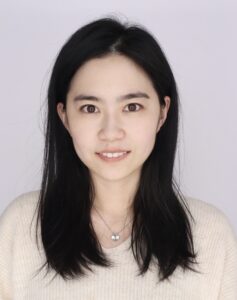
Dr. Qi Huang
Dr. Qi Huang is an Assistant Professor of Educational Psychology and Research Methodology in the Department of Educational Studies.
Read more about Dr. Qi Huang
Why did you choose a career at Purdue’s College of Education?
Purdue’s COE is reputable, collegial, and provides generous support to junior faculty. In addition, West Lafayette is a great place to raise a family.
Describe a research project you have completed.
A research project I have been working on focuses on the Unipolar Item Response Model, which offers a new perspective on scoring metrics. I find it to be a better model representation than traditional IRT for certain educational constructs in reading and vocabulary.
Are there any recent or forthcoming publications you are excited about?
Yes, I’m excited about a paper currently under revision, which is the second in a series of publications from the above-mentioned unipolar IRT project. Additionally, I’m thrilled about my recent publication in Alzheimer’s & Dementia, which highlights the value of psychometric techniques in Alzheimer’s disease and dementia research.
What do you enjoy doing when you’re not conducting research?
During my leisure time, I love spending time with my cats. I also enjoy cooking, baking, and trying my hand at being a barista (my latte art is still more ‘abstract’ than ‘art’).
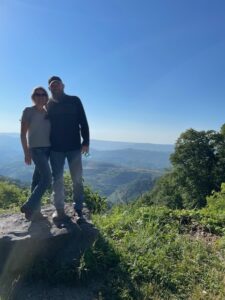
Dr. Kristie Jones
Dr. Kristie Jones is a Clinical Assistant Professor of Special Education in the Department of Educational Studies. This is Kristie’s first year of teaching at Purdue University College of Education.
Read more about Dr. Kristie Jones
Why did you choose a career at Purdue’s College of Education?
I chose Purdue because of the positive environment and the amazing resources I learned about during the interview process. Rural special education is a passion area of mine and the opportunity at Purdue allowed me to continue to focus in this area and make a difference in preparing future special education teachers. I look forward to my new position and contributing to Purdue’s growth and innovation in education.
Describe a research or project you have completed.
My dissertation is titled, “Burnout in rural special education teachers of students with low incidence disabilities: A mixed methods study on the fall of the dedicated and committed.” It was a true passion project and an area I will continue to explore.
Are there any recent or forthcoming publications you are excited about?
I am currently working on getting my dissertation ready for publication. I am very excited to continue this work.
What do you enjoy doing when you’re not conducting research?
Outside of work, I enjoy spending time with family and friends, traveling, reading, baking, and cooking.
About the photo
“The picture is from a motorcycle trip my husband and I took this summer in the Appalachian Mountains. Mountains, motorcycle trips, and summer – a few of my favorite things!”
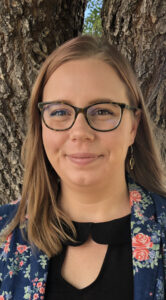
Dr. Beverly Nichols
Dr. Beverly Nichols is a Clinical Assistant Professor of Applied Behavior Analysis in the Department of Educational Studies.
Read more about Dr. Beverly Nichols
Why did you choose a career at Purdue’s College of Education?
I appreciate the focus on teaching, mentorship, and service that clinical faculty have at Purdue. One of the main reasons I pursued a PhD was to be able to influence the field of behavior analysis through teaching and mentoring future behavior analysts. Also, a very good friend of mine is a clinical assistant professor here and it is always nice to be going somewhere you know you’ll have a friend.
Describe a research or project you have completed.
My dissertation investigated whether or not visual supports – scripts, generic picture cues, etc. – are a necessary component of script training and fading procedures when teaching play commenting to autistic preschoolers. I wanted to investigate this because scripts and other visual supports can be difficult to fade out and may be stigmatizing for those using them. All of the participants required the introduction of a visual support – generic picture cue – to increase their play commenting indicating that visual supports are a necessary component. Additionally, a master’s student in our lab replicated my study and found similar results. We are currently working on writing up the experiments into one paper.
Are there any recent or forthcoming publications you are excited about?
While not super recent, I have enjoyed integrating the paper I collaborated on about the internal validity of multiple baseline designs into my single-case research design class. It was fun getting to hear my student’s perspective on the paper!
What do you enjoy doing when you’re not conducting research?
I enjoy getting outside for walks (I’ve really enjoyed the trails at the Celery Bog), reading for fun, and playing games.

Dr. David Jackson
Dr. David Jackson is a Special Education Lecturer in the Department of Educational Studies.
Read more about Dr. David Jackson
Why did you choose a career at Purdue’s College of Education?
I enjoy the staff and they have been extremely supportive. I thoroughly enjoy teaching students and learning from them.
Describe a research or project you have completed.
Assistive Technology is an area of interest. I have created many solutions and continue to work on ideas that help students with access difficulties.
Are there any recent or forthcoming publications you are excited about?
I enjoy presenting webinars and providing consultations to K-12 staff in the areas of Assistive Technology, Augmentative & Alternative Communication, and access for students with orthopedic access difficulties.
What do you enjoy doing when you’re not conducting research?
I enjoy running and handyman/remodeling. I’ve run marathons in 49 states and need Hawaii to complete my goal!

Dr. Kathryn (Katy) Rusnak
Katy Rusnak is a clinical assistant professor of special education in the Department of Educational Studies. She joined the College of Education in Fall 2024.
Read more about Dr. Kathryn (Katy) Rusnak
Why did you want to come to Purdue?
Purdue has a great reputation and after meeting the faculty here, I feel lucky to be a part of such an excellent education community.
Describe a recent research project.
Currently, I’m working on a research project with a professor at IU Indianapolis who is looking into how AI can benefit special education, specifically in blockchain technology uses for Individual Education Plans (IEPs).
Are there any recent or forthcoming publications you are excited about?
With two colleagues from IU Indianapolis, I just finished writing a chapter for the Handbook for Educating Students with Disabilities: Implications and Strategies. The title of the piece is “(How) Do We Ask?: Unlearning Mainstream Disability Axiology, Epistemology, and Ontology to Inform Asset Pedagogies”.
What do you enjoy doing when you’re not conducting research?
Playing pickleball and snowboarding!
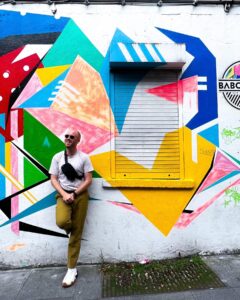
Dr. Richard A. (Ricky) Price
Dr. Richard A. (Ricky) Price is an assistant professor of special education in the Department of Educational Studies.
Read more about Dr. Richard A. (Ricky) Price
How would you briefly describe your research interests?
I chose to have a career at Purdue’s College of Education due to the emphasis on high quality teacher education and community engagement. I think it is imperative in higher education that we train high quality teachers, but that we also engage with the community, doing with and not for.
Briefly describe a research or project you have completed.
My research focuses on supporting students with significant support needs in the transition from high school into employment. Currently, I am working on a project to determine the work-related transition assessments that exist in supporting the career development of students with significant support needs.
Are there any recent or forthcoming publications you are excited about?
Currently I just had a publication published in which we interviewed employers about their successful hiring practices regarding employees with disabilities. https://journals.sagepub.com/eprint/HKNXE6ZQUW7GFAEI3QKN/full
What do you enjoy doing when you’re not conducting research?
It seems that school is a hobby of mine since I keep going back to it and now I’m in higher education, haha. Outside of school and research, I love exploring. Specifically, local and unique breweries, or traveling and exploring other states and countries.
Featured Graduate Students

Samira Bashiru
Samira Bashiru is a third-year doctoral candidate studying Special Education in the Department of Educational Studies. Her major professor is Dr. Jennifer Smith.
Read more about Samira Bashiru
Where are you from, and what did you do prior to your PhD program?
I am originally from Ghana. Before my PhD, I earned a Bachelor of Education in Early Childhood from the University of Education Winneba in Ghana and a Master of Science in Special Education at Purdue University. I then worked as an instructor and practicum coordinator at NorQuest College in Edmonton, Alberta, Canada, focusing on Disability Studies and Early Learning and Childcare.
Why did you choose Purdue and your area of concentration?
Purdue’s strong research focus and commitment to inclusive education drew me in. I am passionate about supporting students with disabilities and preparing educators to foster inclusive classrooms.
What are your areas of research interests? What led to your interest in these areas?
My research focuses on creativity in preschoolers with and without speech disorders, as well as best practices for English learners with disabilities. My background in early childhood education and my commitment to equity in learning experiences inspired these interests.
Tell us about your prior research experience.
Yes, I have published research and presented it at national and international conferences. My work includes systematic reviews, book chapter and empirical studies on creativity in children with disabilities, teacher-student relationships, English language learners and special education practices.
Where do you hope to be in 5 years?
I hope to be a faculty member in higher education, leading impactful research and advocating for inclusive educational policies.
What advice do you have for other new fellow graduate student researchers?
Build a strong support network, seek mentorship, and embrace collaboration. Stay curious and persistent. Research is a journey, so celebrate small wins along the way!
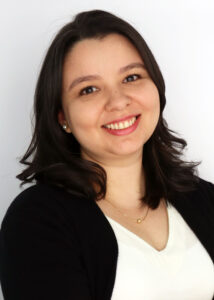
Brenda C. Matos
Brenda C. Matos is fourth year PhD student studying Gifted Education and her major professor is Dr. Nielsen Pereira.
Read more about Brenda C. Matos
Where are you from, and what did you do prior to your PhD program?
I am from Brazil. Before coming to Purdue, I graduated from college in Biological Sciences with a license to teach. I taught gifted students for a couple of years until I got a graduate certificate in Special Education and a master’s degree in Science Teaching. I started to work in higher education as a lecturer on a few teacher preparation courses.
Why did you choose Purdue and your area of concentration?
Purdue has one of the best graduate programs in United States with a focus on Gifted Education. In addition to that, the Gifted Research and Resource Institute (GER2I) that offers enrichment programs for gifted students is world renowned. I met my current advisor in an international gifted conference in Brazil and was amazed to learn about all the great things that GER2I programs offer to students who are gifted and talented. That solidified my decision to apply for a PhD at Purdue.
What are your areas of research interests? What led to your interest in these areas?
My research interests are gifted underachievers and the socioemotional needs of gifted students. These interests started when I was a gifted teacher and witnessed many of my most brilliant students been held back in their performance because of social or emotional reasons, and I felt that I had to do something to help.
What is your prior research experience?
My first research experience was as an undergraduate Fulbright scholar at Arizona State University. I researched teachers’ level of readiness to teach gifted students in university-based summer programs as well as students’ career interests after program participation. Since then, I have done qualitative research in gifted and special education, mostly analyzing the effectiveness of curriculum strategies for gifted students and also for visually impaired students.
Where do you hope to be in five years?
In five years I hope to be a clinical assistant professor to prepare future teachers to develop the best practices to teach all students, respecting their individual needs and helping them to excel in their academic and social performance. I would also like to keep involved with enrichment programs for gifted students in academic or management positions.
What advice do you have for other new fellow graduate student researchers?
Graduate school is a place to learn, so don’t hold too tightly your previous experiences, but make sure you give yourself space to keep learning and moving forward in your career facing new challenges and experiences. Make sure you explore the opportunities that appear to you and make the best use of them to diversify your possibilities.
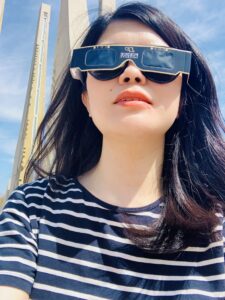
Haixia Zhao
Haixia Zhao is a PhD student studying Educational Leadership and Policy Studies in the Department of Educational Studies.
Read more about Haixia Zhao
Where are you from, and what did you do prior to your PhD program?
I’m from China. Before pursuing my PhD program, I served as a visiting scholar at Indiana University in Indianapolis, where I taught the Chinese language.
Why did you choose Purdue and your area of concentration?
I chose Purdue University because of its global reputation for excellence, renowned scholars, and rigorous programs. I also heard great things about Purdue while working at Indiana University in Indianapolis. I wanted to pursue research that connects college students and society within a broader context. The Higher Education program aligns perfectly with my aspirations. My area of focus is higher education law, policy, and finance.
What are your areas of research interests? What led to your interest in these areas?
I focus on civic education. My grandmother, a teacher, inspired me to pursue this path. A volunteer experience at a Special School during my undergraduate ignited my passion for education. After working for three years as a teacher, I chose my life goal in the educational field.
What is your prior research experience?
My research interests include federal and state laws impacting college students’ decision-making and success, as well as the design and effectiveness of government financial programs. I chose these areas because I observed a paradox: policies and financial aid programs do not always achieve the intended outcomes. Through my research, I aim to advise policymakers on the true impact of their efforts, ensuring they benefit the target population and minimize resource waste.
Where do you hope to be in 5 years?
I aspire to become a faculty member and an independent scholar, leading my own projects and securing grants. Additionally, I aim to equip myself with the skills and knowledge to effectively navigate the challenges that arise in both my career and personal life.
What advice do you have for other new fellow graduate student researchers?
I encourage new graduate student researchers to engage extensively with advisors, professors, and peers to gain valuable insights. With so many brilliant individuals at Purdue, there is much to learn and ample potential for collaboration.
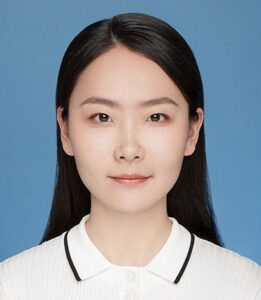
Fan Cao
Fan Cao is a first-year PhD student studying special education in the Department of Educational Studies.
Read more about Fan Cao
Where are you from, and what did you do prior to your PhD program?
I am from China. Before starting my PhD, I earned my Bachelor’s degree from Soochow University and my Master’s degree from Tongji University.
Why did you choose Purdue and your area of concentration?
I chose Purdue because it is an internationally renowned university with rich academic resources. My focus is on special education, particularly using technology to support students with autism and learning disabilities.
What are your areas of research interests? What led to your interest in these areas?
My research interests are in educational technology, specifically in applying it to special education. My interest in these areas stems from a desire to help students with autism and learning disabilities.
Tell us about your prior research experience?
Yes, my previous research has centered on educational technology, exploring how it can enhance learning experiences for students.
Where do you hope to be in five years?
In 5 years, I hope to be in Indiana, successfully working toward completing my degree in the United States.
What advice do you have for other new fellow graduate student researchers?
Take full advantage of the resources at Purdue and stay focused on your research goals.
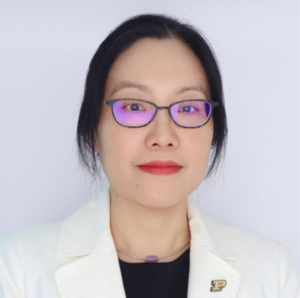
Fangfang Mo
Fangfang Mo is in the first year of her PhD program in Gifted Education in the Department of Educational Studies.
Read more about Fangfang Mo
Where are you from and what did you do prior to your PhD program?
I have a diverse professional background, including experience as a German-Chinese interpreter and translator in both Shanghai and Singapore. Subsequently, I have worked as a Chinese language teacher in both Singapore and Syracuse, NY. Prior to my doctoral study, I have worked as a TA in the Fayetteville-Manlius School District in Syracuse, NY.
Why did you choose Purdue and your area of concentration?
I selected Purdue as the institution for my doctoral study due to its reputation as a leader in the field of education. The GER2I in the College of Education at Purdue has earned a reputable status in the realm of gifted education worldwide. The faculty consists of renowned scholars who possess extensive knowledge and experience in the field. Additionally, my advisor’s research aligns with my personal research interests. Lastly, the diverse cultural atmosphere among the international student body at Purdue provides a source of inspiration for me.
What are your areas of research interest? What led to your interest in these areas?
My research encompass a range of topics, including the study of creativity and related topics, examination of social-emotional issues affecting gifted adolescents, exploration of alternative identification methods that do not rely on IQ or other cognitive assessments, and investigation of underachievement among gifted female students, especially those from underrepresented backgrounds. My passion for the field of gifted education was fostered while serving as a Chinese language teacher in Singapore. During that time, I had the opportunity to work closely with gifted students and became aware of their unique academic and social-emotional needs. I observed that some of these gifted students were at risk due to a lack of appropriate educational support. This experience motivated me to further explore the needs of gifted students and seek ways to help them reach their full potential and make meaningful contribution to society.
What have been the highlights of your research experience so far?
As a novice in the field of gifted education, I have been actively working on several research projects that align with my research interests. My current projects include exploring underachievement among gifted female students from financially impacted families in the aftermath of the pandemic, examining the potential social-emotional impact of the pandemic on gifted adolescents, and investigating gifted students’ perspectives on the influence of ChatGPT and other AI applications. I hope that my research will make a dent in the field, no matter how small.
Where do you hope to be in five years?
In five years, I see myself as a tenure-track assistant professor at a leading research university, where I can continue to advance the field of gifted education through my research, teaching, and engagement. My goal is to make a meaningful impact on the lives of gifted individuals and the broader community through my dedication and commitment to this field.
What advice do you have for your fellow graduate student researchers?
I would like to share a valuable lesson that I have learned from my advisor with my fellow graduate student researchers. It is utmost important to maintain a balanced work-life equilibrium and to prioritize one’s commitments. It is essential to constantly reflect on what truly holds significance in one’s life, and to allocate one’s time and resources accordingly. By doing so, one can cultivate a harmonious and fulfilling existence, both professionally and personally.